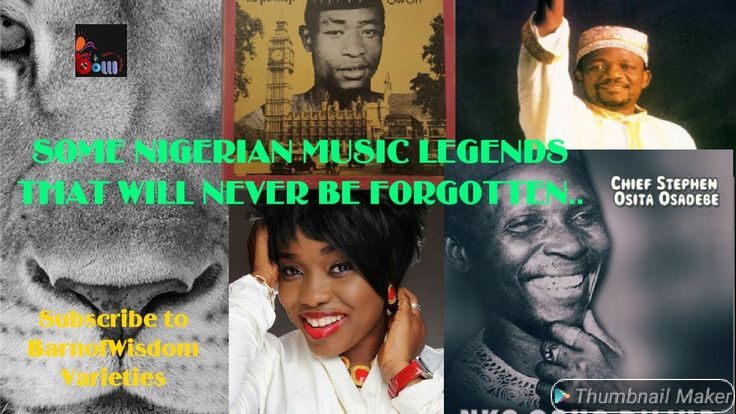The Evolution of Afrobeats: A Legacy of Innovation and Influence
Afrobeats has transcended its origins to become a global phenomenon, captivating audiences across continents. From sold-out arenas in Europe and America to trending playlists on Spotify and Apple Music, this genre has redefined what it means to be a cultural export from Africa. However, the journey of Afrobeats is deeply rooted in the contributions of pioneering Nigerian musicians who laid the foundation long before contemporary stars like Burna Boy, Wizkid, and Davido took the world by storm.
These visionaries blended traditional African rhythms with modern sounds, creating a unique musical identity that continues to evolve. Their work not only shaped the sound of Afrobeats but also influenced the way music is perceived and consumed globally. Here are some of the key figures whose artistic brilliance and perseverance paved the way for today’s Afrobeats revolution.
1. Fela Anikulapo Kuti – The Godfather of Afrobeat
Fela Kuti is often regarded as the father of Afrobeat, a genre that, while distinct from Afrobeats, has had a profound impact on its development. In the late 1960s, Fela fused jazz, funk, highlife, and traditional Yoruba rhythms to create a powerful musical style that was as much about political expression as it was about entertainment. Songs like “Zombie,” “Water No Get Enemy,” and “Sorrow Tears and Blood” combined infectious rhythms with bold lyrical messages, setting a precedent for future artists.
Fela’s emphasis on African identity, self-expression, and resistance against colonial legacies inspired generations of musicians. Even today, artists like Burna Boy openly acknowledge his influence, proving that Fela’s legacy remains alive in the heart of Afrobeats.
2. King Sunny Adé – The Juju Maestro
King Sunny Adé played a crucial role in bringing Nigerian music to the international stage. While not strictly an Afrobeats artist, his innovative fusion of guitars, synthesizers, and traditional Yoruba percussion created a sound that was both accessible and distinctly Nigerian. His breakthrough in the 1980s, including a Grammy nomination, demonstrated that African music could achieve global recognition.
His artistry and professionalism set a benchmark for future Afrobeats musicians, showing that African music could be both culturally rich and commercially viable.
3. Ebenezer Obey – The Philosopher with a Guitar
Ebenezer Obey, another Juju legend, introduced storytelling into Nigerian music through his lyrical depth and rhythmic guitar work. His songs often contained social commentary and philosophical reflections, shifting the perception of music from mere entertainment to a tool for enlightenment and change.
Obey’s influence can be seen in the themes explored by many contemporary Afrobeats artists, who continue to address issues like poverty, corruption, and resilience.
4. Sir Victor Uwaifo – The Guitar Boy Genius
Sir Victor Uwaifo, known for hits like “Joromi,” brought together modern instrumentation with Edo cultural heritage. As the first Nigerian musician to win a gold disc, he showcased the potential of indigenous sounds and regional languages in mainstream music.
His creative approach inspired later Afrobeats artists to experiment with traditional elements, making African storytelling more widely recognized.
5. Onyeka Onwenu – The Elegant Stallion
Onyeka Onwenu broke barriers as one of the few female musicians to thrive in a male-dominated industry during the 1980s and 1990s. Her music addressed themes of nationalism, love, and women’s rights, blending pop, highlife, and Igbo traditions.
Her success paved the way for future female artists like Tiwa Savage, Tems, and Ayra Starr, proving that women could be both commercially successful and culturally relevant.
6. Majek Fashek – The Rainmaker
Majek Fashek brought reggae influences into Nigerian music, creating a sound that resonated with audiences across the continent. His 1988 hit “Send Down the Rain” became a national anthem, showcasing the power of African music to convey spiritual and social messages.
His global perspective and activism inspired future Afrobeats artists to tell African stories on a universal scale.
7. Daddy Showkey – The Ghetto Soldier
Daddy Showkey introduced the concept of street culture into Nigerian popular music through the Galala genre. His music celebrated the struggles and resilience of everyday Nigerians, influencing artists like Olamide and Zlatan.
By elevating regional music and street culture, he helped diversify the Afrobeats landscape.
8. 2Baba (formerly 2Face Idibia) – The Pop Prophet
2Baba bridged the gap between traditional Nigerian music and contemporary Afrobeats. His 2004 hit “African Queen” marked a turning point in Nigerian pop music, introducing a romantic sound that would later define Afrobeats.
His international appeal and commercial success demonstrated that Nigerian music could thrive globally.
9. D’banj – The Entertainer Who Took Africa to the World
D’banj and producer Don Jazzy transformed the Nigerian music industry in the mid-2000s. Hits like “Oliver Twist” and “Tongolo” reached UK charts, showcasing the global potential of Afrobeats.
His collaborations with international artists and bold marketing strategies set a new standard for Afrobeats musicians.
10. P-Square – The Pop Duo Who Redefined African R&B
P-Square, consisting of brothers Peter and Paul Okoye, revolutionized African pop music with their energetic performances and catchy tunes. Their success on the global stage, including partnerships with Akon and Rick Ross, helped elevate Nigerian music internationally.
Their influence is evident in the rhythmic, danceable sound that defines modern Afrobeats.
The Giants Whose Shoulders Support Afrobeats
Afrobeats did not emerge overnight; it is the result of decades of creativity, defiance, and innovation. The pioneers discussed above laid the groundwork for today’s global stars, blending traditional rhythms with modern styles and expressing cultural pride through their music.
From Fela’s rebellious spirit to P-Square’s pop sensibilities, these artists created a legacy that continues to shape the future of Afrobeats. As the genre grows, their influence remains a vital part of its story, reminding us that music is not just an art form—it is a force for change and connection.







